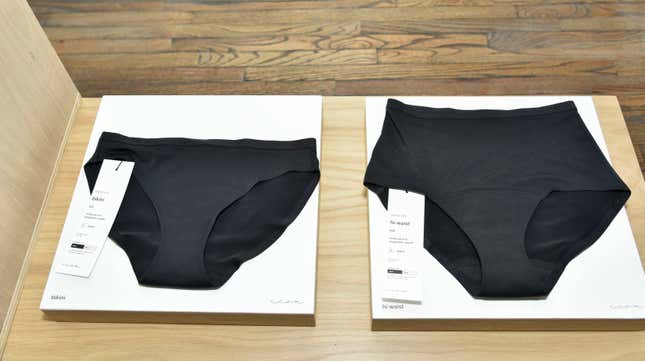Thinx Period Panties May Contain Crotch Toxins
Latest

Thinx period panties sure do have a way of keeping themselves in the news: first ads for Thinx were banned from the NYC subway for reminding men that periods exist, then founder Miki Agrawal was ousted amid sexual harassment allegations, now, it would seem that the panties themselves are full of poison.
A recent investigation by the Sierra Club’s magazine, Sierra, found that the crotches of Thinx contained polyfluoroalkyl substances, or PFAs. These chemicals have been linked to cancer and fertility problems in humans, so right next to the vag is most likely not the best place for storing them.
In order to test the PFA levels of various period underwear, journalist Jessian Choy mailed unused Thinx, along with similar products from Lunapads, to a lab. Of the three brands, the main line of Thinx underwear and their product marketed to teens were the only ones that tested positive for PFAs.
-

-

-

-

-

-

-

-

-

-

-

-

-

-

-

-

-

-

-

-

-

-

-

-

-

-

-

-

-

-

-

-

-

-

-

-

-

-

-

-








































